The Independent's journalism is supported by our readers. When you purchase through links on our site, we may earn commission.
Kigali city guide: where to eat, drink, shop and stay in Rwanda’s charming capital
Prepare to be won over by Kigali’s history, culture and cuisine
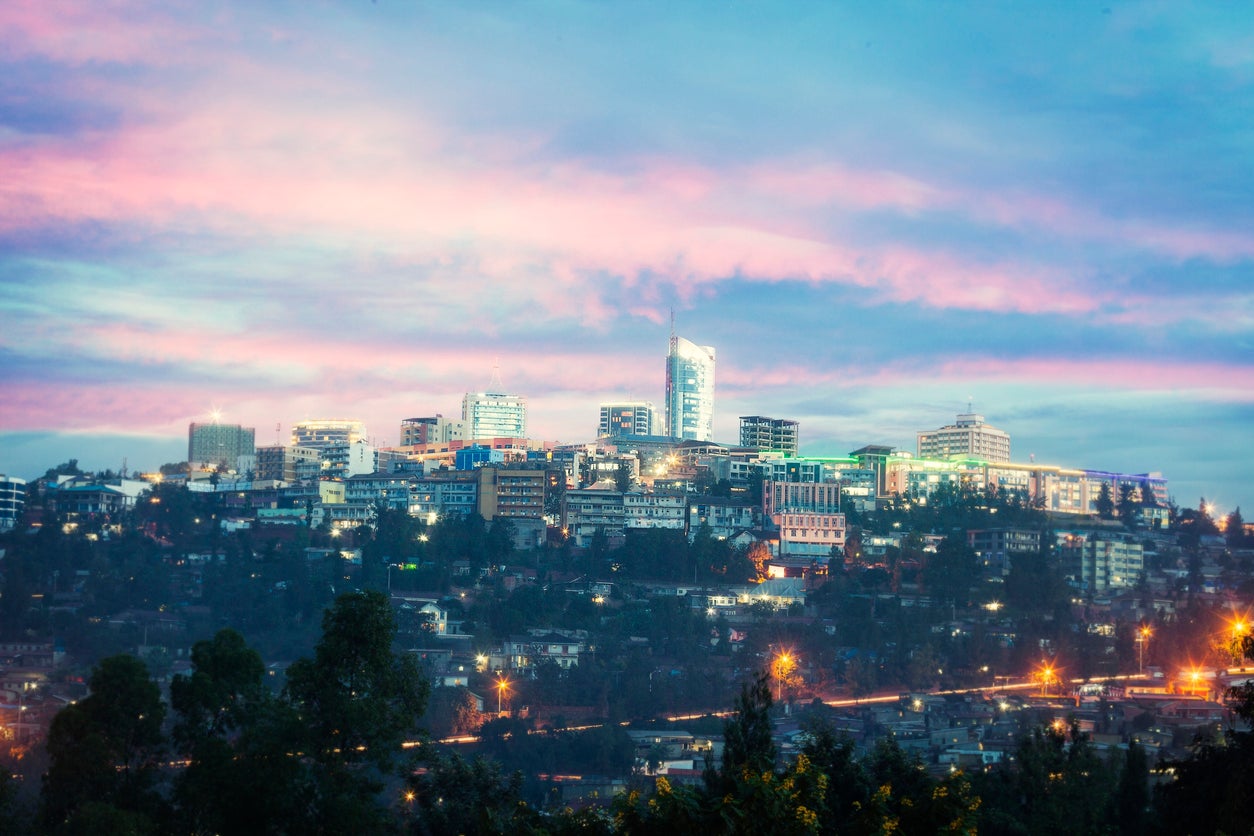
Your support helps us to tell the story
From reproductive rights to climate change to Big Tech, The Independent is on the ground when the story is developing. Whether it's investigating the financials of Elon Musk's pro-Trump PAC or producing our latest documentary, 'The A Word', which shines a light on the American women fighting for reproductive rights, we know how important it is to parse out the facts from the messaging.
At such a critical moment in US history, we need reporters on the ground. Your donation allows us to keep sending journalists to speak to both sides of the story.
The Independent is trusted by Americans across the entire political spectrum. And unlike many other quality news outlets, we choose not to lock Americans out of our reporting and analysis with paywalls. We believe quality journalism should be available to everyone, paid for by those who can afford it.
Your support makes all the difference.There is something immediately winsome about Kigali. Its spick-and-span streets are safe to wander and – despite, or perhaps because of, the security everywhere – a relaxed and friendly vibe prevails. Sprawled across lush hills, the Rwandan capital has heaps to explore, including moving historic monuments, an exciting creative scene and a diverse slew of restaurants and bars. Spend at least a couple of nights here – and prepare to be charmed.
What to do
Kigali creatives
Rwanda has a growing art scene, which you can dip into at one or two of Kigali’s cool boutique galleries. Inema Arts Center is in a little converted house run by a group of 10 Rwandan artists who exhibit their work there; their studio is around the back.
Not just a place to admire and buy art, it’s also a social spot with regular dance performances, workshops and a Thursday evening happy hour. Entrance is free.
Kigali Arts Center is another great gallery showcasing local artists with regular events, such as painting classes for kids on Saturdays.
Kigali Genocide Memorial
There’s much more to Rwanda than “gorillas and genocide”, as one local put it, but the excellent memorial centre is an essential starting point as it puts everything into context. The memorial is the resting place of 250,000 of the million-plus Tutsis killed in 1994. It’s a site for mourning, but also a centre that explains how the genocide happened and how the country has gone on to heal itself. It’s a hard-hitting, powerful experience that includes photographs of victims – including a room dedicated to children, in which it’s difficult to remain composed – and video footage. If you need a moment afterwards, visit the cafe or take a stroll through the rose gardens.
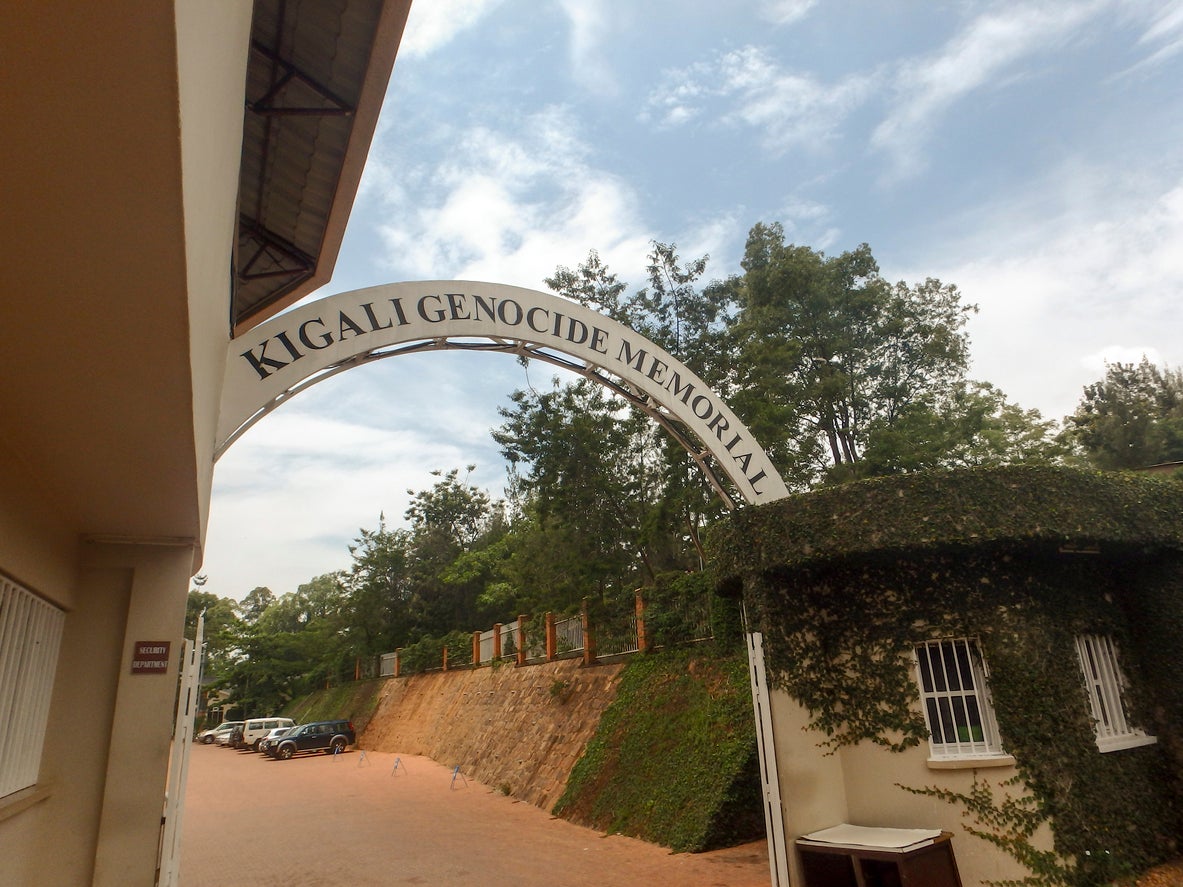
Entrance is free; audio guides in several languages cost RWF 12,000 (£10.50); guided tours for groups of four people upwards start from RWF 80,000 (£70). Note that children under 12 are not permitted and respectful conduct and dress is expected.
Neighbourhood tours
Explore Nyamirambo, one of Kigali’s oldest neighbourhoods, with a guide from the Nyamirambo Women’s Center (NWC). Learn about the history of this Muslim neighbourhood as you wander, before sitting down to lunch with NWC member Aminatha (the group’s best cook). Tours cost RWF 15,000 (£13) and lunch is RWF 3,000 (£2.50). A cooking class with Aminatha is RWF 15,000 (£13), including a trip to the market.
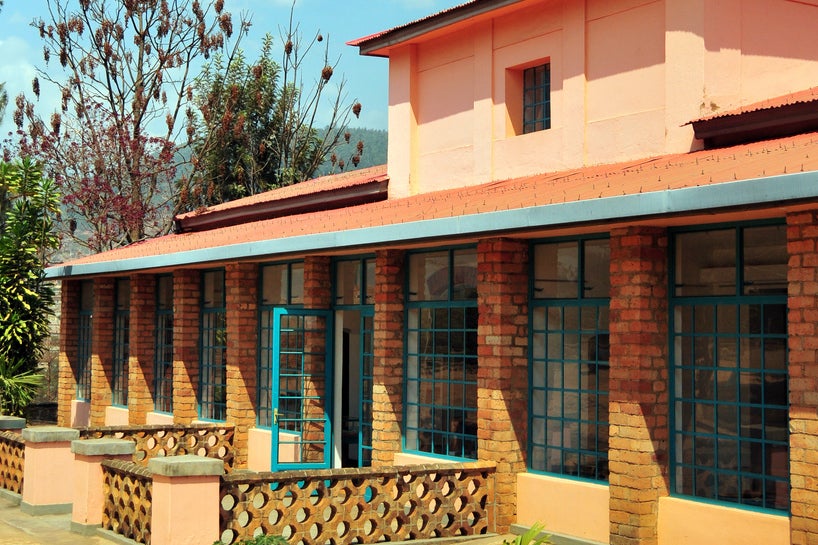
Natural history
Delve into Rwanda’s history at Kandt House Museum (formerly the Museum of Natural History), which is housed in the residence of Richard Kandt, built when he founded Kigali in 1907. Entrance is RWF 6,000 (£5).
Where to stay
The Retreat is a stylish, five-star boutique hotel that opened in 2017. There are 11 suites decked out in pale wood and splashes of bright fabrics, with outdoor showers. The hotel is also 100 per cent solar-powered. Doubles from RWF 466,000 (£411), B&B.
An established high-end option, Kigali Serena Hotel is a classically grand city hotel with 148 rooms, plenty of facilities (spa, gym, two restaurants) and an impressive, wide-ranging breakfast buffet. Doubles from RWF 382,000 (£336), B&B.
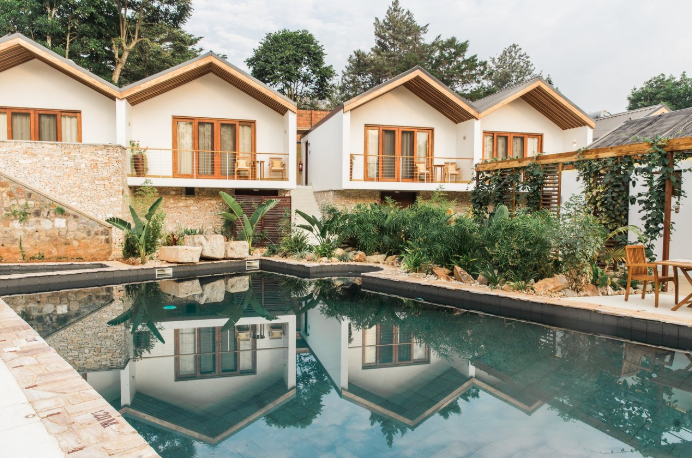
The Retreat’s sister property is four-star Heaven Boutique Hotel, which has 22 comfortable rooms. Heaven is also a popular restaurant and a social enterprise; to date, they have trained around 1,000 Rwandans in hospitality. Doubles from RWF 128,600 (£113), B&B.
The Nest is a great-value, well-located and friendly hotel featuring lots of Rwandan art and fabrics. Doubles from RWF 39,600 (£34), B&B.
Where to eat
Repub Lounge is popular with visitors and Kigali locals alike, serving a range of Rwandan dishes to share such as moreish fried plantains, sambaza (fried little fish from Lake Kivu) and beef samosas, alongside chicken kebabs, burgers, steaks and curries. The back terrace overlooks the city and is a great spot to enjoy evening cocktails with live music.
Heaven Restaurant is a casual space favoured by local expats, offering salads, sandwiches, burgers and pasta. Next door is Fusion at The Retreat, Heaven’s more up-market restaurant, where you’ll find elegantly plated mains, such as Rwandan steak with mushroom chutney and coffee and red wine sauce. Prices are at the higher end, comparatively: £13 to £18 per main and £7 for a glass of South African wine.
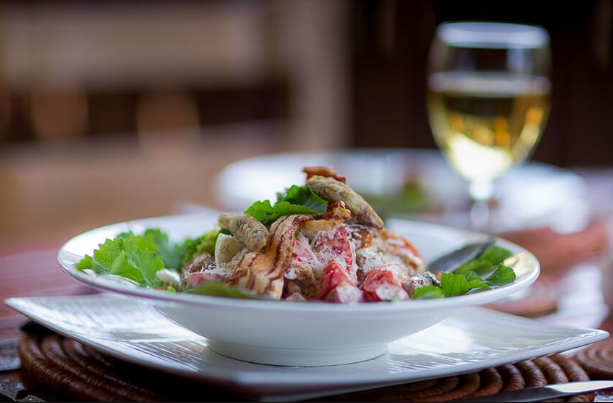
Poivre Noir is a French-style bistro with an alfresco terrace dining area. The small, variable menu might include slow-roasted pork shoulder, white truffle risotto or chargrilled tilapia.
For a casual bite to eat, head to the unassuming Meze Fresh, where the surprisingly good quesadillas and burritos can be paired with zesty margaritas.
Try traditional Rwandan food at Fantastic Restaurant, which has a massive buffet to browse.
Where to drink
Pili-Pili is one of the city’s favourite hangouts, with its hillside view of Kigali, pool deck, and fun, relaxed atmosphere. Open from noon until 1am (except Mondays), families are welcome, and DJs play after dark over the weekend.
Sip a sundowner by the pool at Hotel des Mille Collines, where over a thousand people found refuge during the Rwandan genocide, the story of which is told in the film Hotel Rwanda.
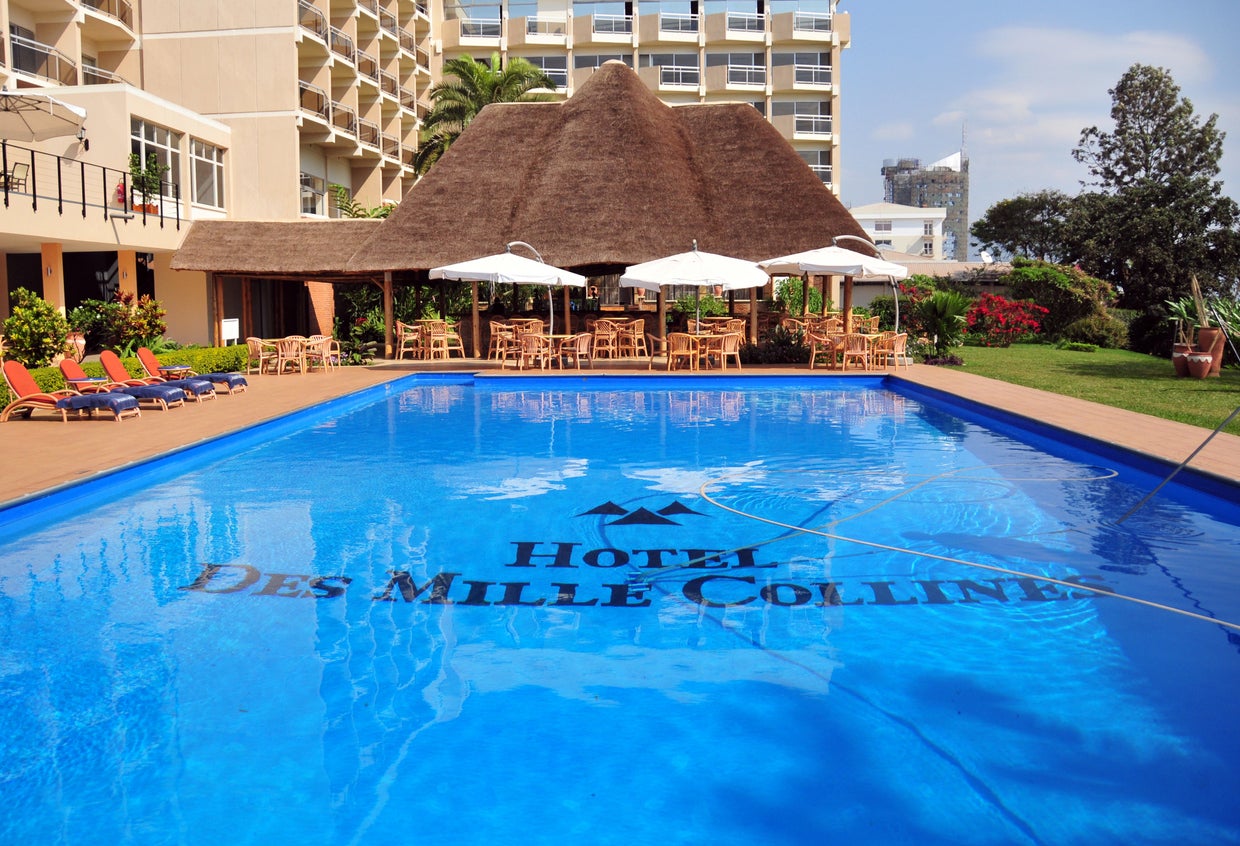
Coffee is big in Kigali. Head to Question Coffee, where the staff really know their beans. Their coffee is sourced locally, with proceeds going back into agricultural training and supporting low-income female farmers. They organise coffee tours and hold on-site coffee master classes. The cafe is also very popular with remote workers – expect a laptop on every table.
Another good spot for a coffee break is the little Inzora Rooftop Cafe, which you’ll find at the back of Ikirezi Bookshop. Admire the expansive views of Kigali with a cortado and a gluten-free brownie.
Where to shop
Make your first port of call Rwanda Clothing, where you can order a bespoke design to pick up in three to five days or browse their off-the-rack selection.
The Kigali Cultural Village has a number of stalls stocked by Rwanda’s top designers of clothes, jewellery and art. Haute Baso is a trove of locally made wares, from summery dresses to colourful bags, and House of Tayo is a must-visit, especially for menswear.
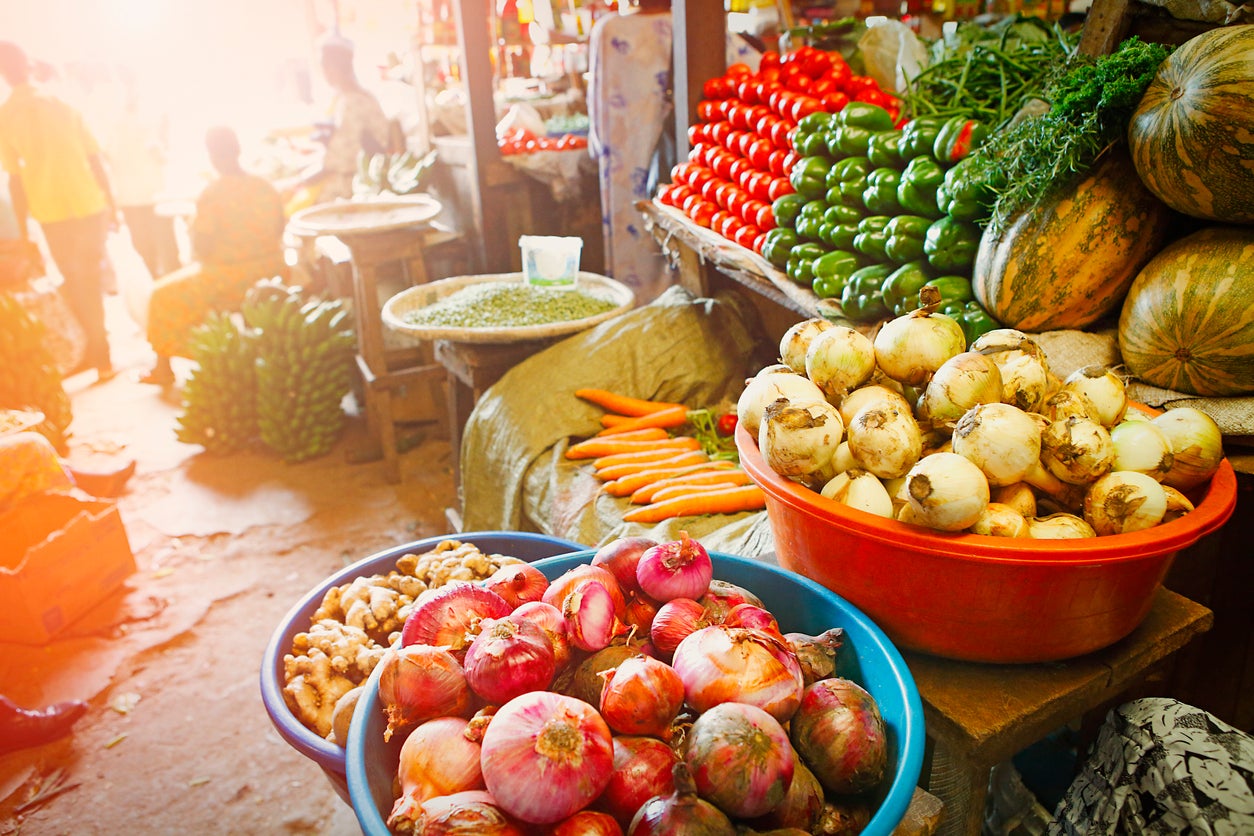
Abraham Konga sells jewellery made from old padlocks and recycled materials, and you can support three women’s cooperatives at The Shop.
Love a market? Get lost in the warren of Kimironko Market, where you’ll find everything from jazzy fabrics (mostly made in Rwanda, DRC, Nigeria or China) to mountains of fruit and veg.
Nuts and bolts
What currency do I need?
Rwandan francs (US dollars are also used).
What language do they speak?
Kinyarwanda, with some French, English and Swahili.
Should I tip?
10 per cent in restaurants.
What’s the time difference?
GMT +2.
What’s the average flight time from the UK?
10.5 hours.
Public transport
Taxis are readily available, but moto taxis are everywhere and much cheaper (though not for everyone). Drivers have to carry a spare helmet for passengers by law and fees are open to bartering; you shouldn’t have to pay more than RWF 1,000 (£1) for a moto.
Best view
Kigali is built across several hills, so there are multiple lookouts, including Pili-Pili, Repub Lounge and Hotel des Mille Collines.
Insider tip
The last Saturday of every month is Umuganda, a day of nationwide community service. From 8am for at least three hours, the roads are closed as people clean up the streets, help with building and repair work, or tend to public gardens. Most places will have limited opening hours. Also note that plastic bags are banned throughout the country; pack reusable bags only.
Join our commenting forum
Join thought-provoking conversations, follow other Independent readers and see their replies
Comments